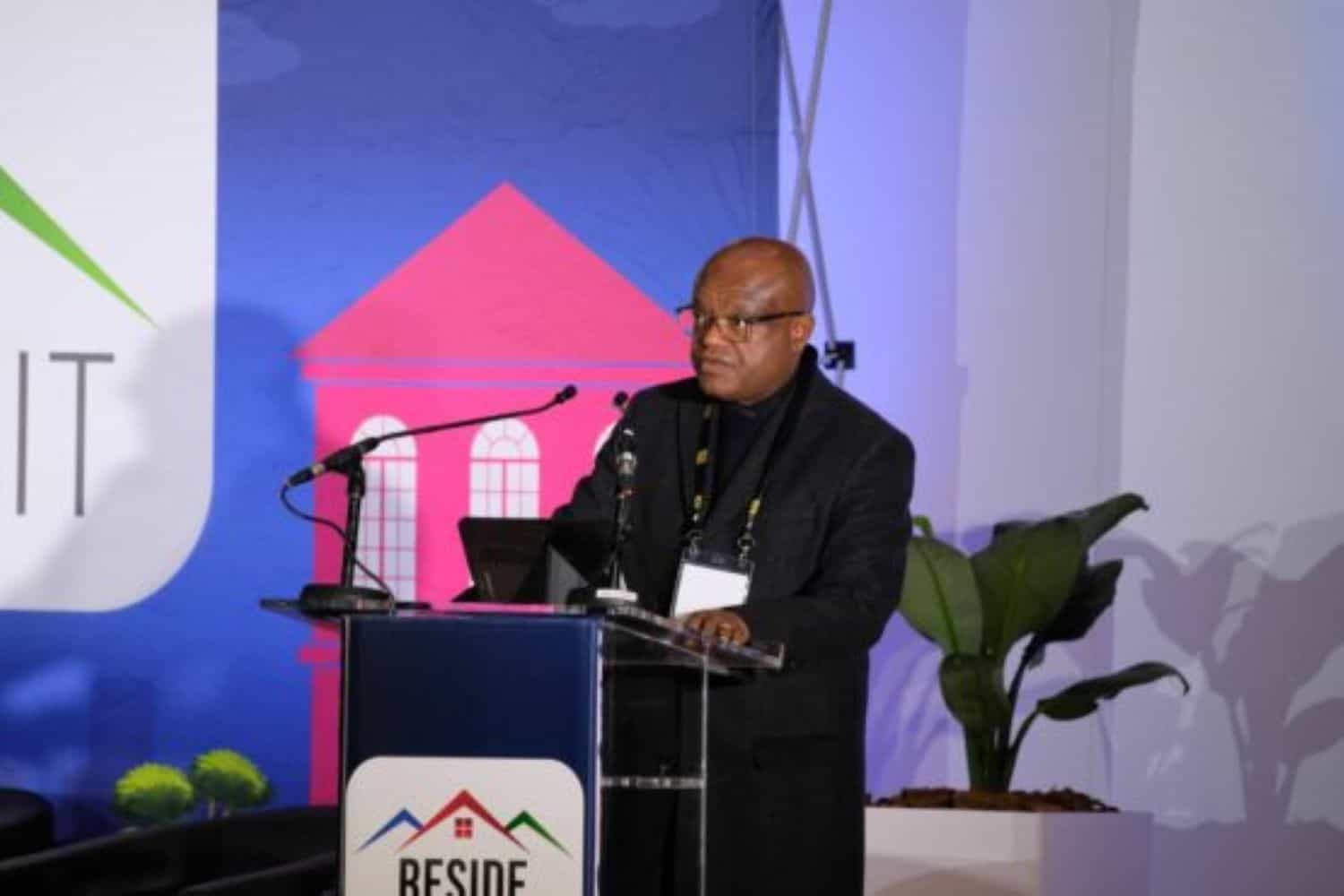Mayor commits to cutting bureaucracy as private sector urges action on service delivery and rising costs.
Johannesburg faces a housing backlog of more than 300 000 units. The city’s approved housing budget for 2025/26 is R8.9 billion – far short of what is needed. According to mayor Dada Morero, at least R60 billion is required to make a meaningful dent in the shortfall.
Speaking at the third annual Reside Summit, which opened on 9 July in Sandton, Morero acknowledged the city’s failure to act swiftly on housing delivery and called for urgent partnerships to accelerate development.
Delivering the keynote address at the Sandton Convention Centre, Morero pledged to reduce red tape to encourage private sector investment, admitting that the city’s approach has been insufficient.
“We have made bold statements on housing interventions, but we have also acknowledged that we have been slow, fragmented, and overly bureaucratic,” he said.
“This summit is a critical platform to reset our approach and build the partnerships needed to deliver homes faster.”
To attract investment and drive what he describes as a “housing revolution,” Morero said the city is committed to streamlining its approval processes. This, he believes, will allow developers to proceed more efficiently with housing projects that could help close the housing gap.
ALSO READ: Gauteng’s housing crisis: 150 years to clear the backlog
Developers welcome initiative but raise concerns
Private sector representatives at the summit welcomed the mayor’s commitment to cutting through bureaucracy. However, they flagged unresolved challenges that continue to hold back development.
Rob Wesselo, group managing director of International Housing Solutions, and Paul Jackson, co-founder of the Trust for Urban Housing Finance (TUHF), noted that consistent access to services such as water, electricity and sewage is critical.
They warn that unreliable service delivery poses a major threat to investor confidence and long-term project viability.
They also raised concerns about the financial pressures developers face. Johannesburg’s property tax rates have reportedly increased by over 45% since 2010.
Utility charges on rental units often amount to R2 000 a month for a R4 000 rental property.
These rising costs continue to squeeze both landlords and tenants, making affordable housing harder to achieve.
ALSO READ: Joburg plans to ease housing crisis with mega projects and acquisitions
Economic outlook adds pressure
Providing broader economic context, Investec chief economist Annabel Bishop predicts GDP growth of just 0.9% for 2025. Inflation is expected to ease to around 3.5%, but she cautioned that interest rate cuts would be gradual, meaning borrowing will remain expensive for longer.
While moderating inflation offers some relief for input costs, slow economic growth and high borrowing costs could limit developers’ ability to finance large-scale housing developments.
ALSO READ: Joburg housing MMC says Fleurhof residents unhappy over housing are ‘disgruntled’
A platform for progress
Debbie Tagg, chair of the Reside Summit, said the event aims to move beyond discussion and drive real action.
“This summit is more than a conversation, it’s a catalyst. Solving South Africa’s housing crisis demands shared expertise, shared risk, and shared opportunity – it’s the only path to scale, sustainability, and speed.
“We appreciate every leader, partner and practitioner, and the many engaged and interested delegates, who have showed up with purpose and made the Reside Summit a true platform for progress.”
This article was republished from Moneyweb. Read the original here.
